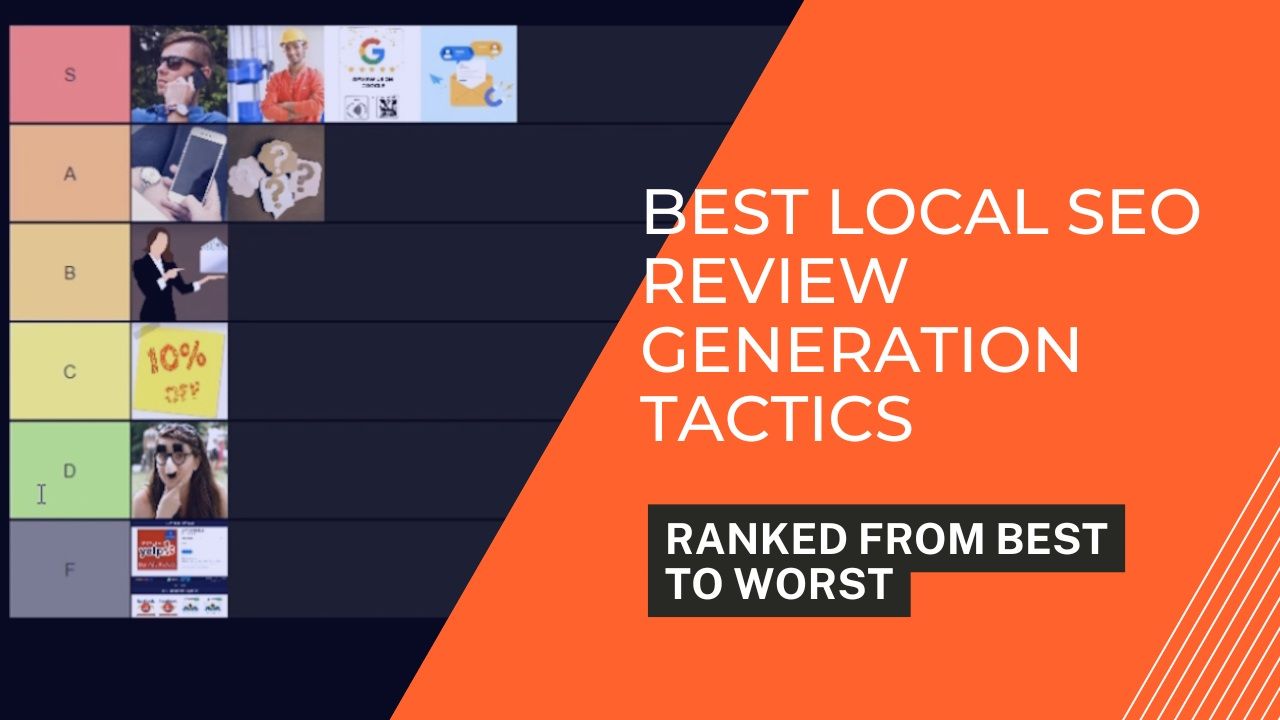When we speak with small businesses that have an existing website, we hear the following more often than I wish we did.
- They don't know what their website conversion rates are
- They think it's impossible to track the performance of every marketing initiative and channel
- They are unsure of how to optimize for conversions to maximize their ROI
All of the issues above and then some can be resolved by making sure you have conversion tracking in place in all of the right areas.
By using conversion tracking, you can identify precisely which traffic sources are driving conversions, phone calls, revenue and more. This gives you an accurate understanding of your customer's journey and how you can target future customers who are similar.
This article will explore why conversion tracking is a must-have for any successful digital marketer and discuss best practices to ensure success when implementing this powerful tool.
What is a Conversion Anyway?
When it comes to internet marketing and digital sales, conversions are the lifeblood of success.
A conversion is a term used to describe when a potential customer takes an action that benefits your business. This could be filling out a form on your website, clicking through to purchase your product or service, subscribing to an email newsletter, or whatever else you determine.
At the same time, conversion tracking gives you an understanding of each individual customer's journey. This means questions like "how did they find us" or "what page encouraged this sale?" can easily be answered and measured.
Conversions Tell You What is Working, and What Isn't
All businesses want to increase their conversions, as this generally indicates more people are engaging with the brand - thus increasing revenue and profit margins in the long term. However, improving your conversion rate often requires careful monitoring of data trends and ongoing optimization of advertising dollars.
By keeping a close eye on your campaigns and understanding how users interact with them, you can make better decisions about allocating your budget, making the necessary tweaks, and improving each campaign's performance.
You're also able to see which channels are performing better than others - allowing you to double down on successful campaigns and cut back on the ones that aren't producing results.
Quick Benefits of Conversion Tracking
Conversion tracking give you a variety of benefits to digital marketers and businesses alike. By understanding how users engage with each campaign, you're able to:
More effectively allocate your budget across different channels: As mentioned above, with a thorough understanding of user behavior, you can allocate your budget in the most effective way possible. This could include doubling down on successful campaigns or cutting back spending on non-performing ones.
Analyze the success of campaigns in real-time: Conversion tracking allows you to track and analyze user behavior. This means that you can respond quickly to changes in user behavior, enabling more effective decision-making.
Identify any potential issues or areas of improvement: Conversion tracking can also help you identify any potential issues or areas of improvement. This could include identifying and fixing broken links, or redesigning a page with too many distractions for users based on the Engagement Rate or other factors.
Track the customer journey from start to finish: When set up properly, you can use conversion tracking to help you understand your customer's journey from start to finish. This allows you to make improvements based on user feedback and optimize your campaigns for better results.
Measure the ROI of each campaign: Last but not least, conversion tracking allows you to measure each campaign's return on investment (ROI). This allows you to better understand which campaigns provide the best value for money and make informed decisions about budget allocation.
If you are engaging in a search engine optimization campaign, conversion tracking can help you see if your results match up with your predictions. Check out our article on Predicting SEO ROI to find out more.

How to Get Started With Conversion Tracking
Fortunately, numerous tools are available to help you track conversions more effectively. Many of them are even free. Some of the most popular tools include:
Google Analytics
Google Analytics is one of the most popular and powerful platforms for tracking website and marketing performance. It provides in-depth insights into visitor interactions, allowing you to easily understand how customers browse through your website, where they came from and what they did on your site.
From start to finish, it tracks user behavior with valuable metrics like pageviews, traffic sources, engagement rate and conversions. With custom reporting and segmentation tools, you can slice data in any way that's useful.
Furthermore, with Google Analytics 4, their most recent update, Google Analytics offers an intuitive dashboard that gives you crucial information in a visually appealing way. All of this makes Google Analytics a great choice for anyone looking to gain key insights into the performance of their site or marketing campaigns. It's also free and a must have for your website.
Google Tag Manager
Google Tag Manager is a valuable tool for website and app owners. It simplifies adding and managing tracking tags that can report on user behavior across your entire digital presence online.
Google Tag Manager integrates with Google Analytics, allowing it to provide you with detailed reporting on what people are doing on your website, such as which pages they visit most often or how long they stay on a page before leaving.
This data helps webmasters make informed decisions to improve the user experience or better their digital marketing efforts. With Google Tag Manager, managing tracking tags is much easier.
Other Tools For Tracking Conversions
In addition to the popular tools mentioned above, there are several other great options for tracking conversions. While we haven't used all of these ourselves, we think they are worth mentioning here:
Smartlook
Smartlook provides a simple yet robust way to analyze user behavior on your website and mobile app. They are a product analytics tool with an aim of giving you a full understanding of user behavior. By combining qualitative and quantitative data, Smartlook gives you the answers to what and why people do what they do on your website or mobile app:
- "What's wrong with my mobile app?"
- "Are visitors doing what I need them to do?"
- "Where and why do my visitors drop off?"
- "What are the most important elements on my pages?"
Smartlook offers session recordings, heatmaps, custom events and more. Best of all, it integrates well with many of the tools you are already using and familiar with - though, it's easy enough to configure and use out of the box as well.
Have a look and try it for free here: Smartlook
Mixpanel
Mixpanel allows you to track user behavior across multiple devices in real time. Similar to Google Analytics, it tracks user engagement with your website or app, but provides powerful, highly customizable reports that should give an answer to any data-based question you have.
Have a look at Mixpanel here: Mixpanel Analytics
HubSpot Website Grader
HubSpot Website Grader is a tool for tracking website performance. It provides insights into your website's SEO, accessibility, speed and mobile-friendliness. It also tracks conversions for you. Check it out here: Hubspot Website Grader
Kissmetrics
Kissmetrics is another great real-time option for tracking user behavior across multiple devices. It tracks key user activities, such as how users navigate your site or app, where they came from, and what actions they take. Kissmetrics is much more robust than Google Analytics and provides a great comparison between their two tools here: Google Analytics vs. Kissmetrics
PixelMe
PixelMe is a tracking tool specifically designed for digital marketers. It helps track conversions from marketing campaigns and provides detailed analytics on user behavior. It tracks clicks, page views, time spent on the site from third-party campaigns using shortened links and more. Have a look: PixelMe
Conversion Tracking is Essential
Conversion tracking is an essential tool for any digital marketing campaign. Tracking leads to measurement which ultimately leads to assessment and growth.
Fortunately, several great tools are available to help you gain these insights. With the right tools in place, you can easily track conversions and start getting more out of your website and digital marketing campaign.
Tekkii can help you set up detailed conversion tracking and help optimize your campaigns. If you have any questions, please don't hesistate to
contact us today!
Article by:

Looking to discover how you can improve your results from the web? Contact us to request a free consultation and we'll help you find out.
Recent Articles
Share This Article
Get the Latest
Subscribe for more digital marketing insights & tips to grow your business.
Leave A Comment



